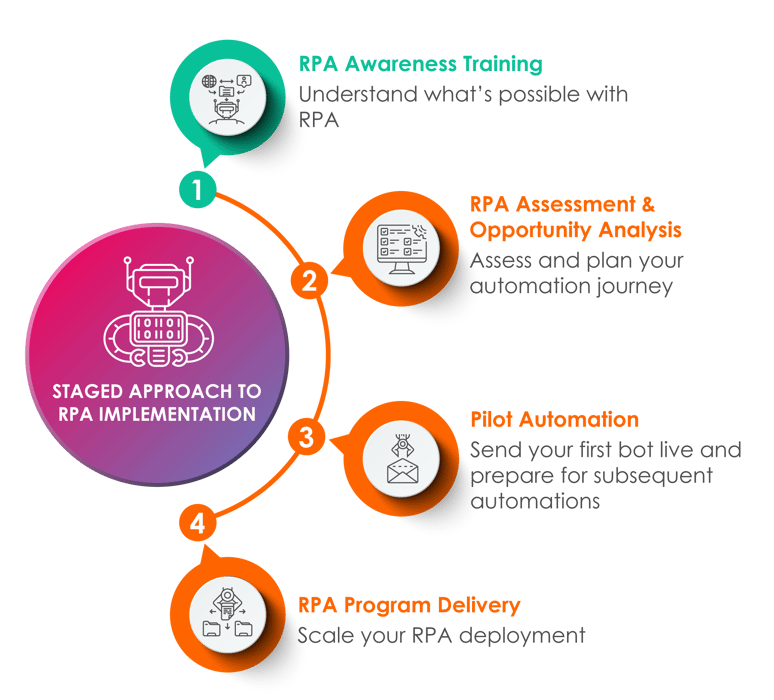Step 1: Start your automation journey
Our RPA implementation process is designed to help you understand how RPA works, the benefits, and the types of processes best suited to automation
RPA can transform your business by automating the repetitive manual processes and freeing up employees to focus on more important, value-adding tasks.
Get ahead of the pack
This technology is becoming increasingly common, so educate your business to gain a competitive advantage. The first step in our process is training, which is necessary for organisations to understand what RPA is, what can be automated, and generate ideas for streamlining their operations. Once your training is complete you will be ready to learn what you should automate first. This is Step 2 in your journey: RPA Assessment and Opportunity Analysis Information.
Start your journey with RPA Awareness Training
Our team has extensive experience implementing and configuring market-leading software in small to large organisations across different functions and industries. Our RPA awareness training ensures you maximise its value. It's time to streamline your business operations and leverage RPA technology.

